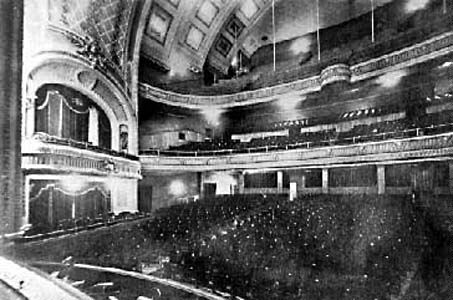Search | Image Archive | Reference | Communities | POV | Lesson Plans | Credits
 The success of any political campaign depends on its ability to capture the imagination of the public and the attention of the press.
The success of any political campaign depends on its ability to capture the imagination of the public and the attention of the press.
This was the thinking of the Manitoba chapter of the Canadian Women's Press Club when they staged the Parliament of Women in the fall of 1914. Modelled on similar skits that had been performed in Toronto and Vancouver, the women's parliament was a farcical sketch designed to ridicule the arguments of those who opposed the extension of the franchise. By turning the tables - women occupied all of the seats in the legislature and men brought a petition for the vote - the women hoped to underscore the absurdity of the arguments of those who opposed the enfranchisement of women. Members of the audience were treated to bombastic and long winded speeches and constant heckling as the male petitioners were dismissed on the grounds that "beautiful and cultured men" would be corrupted by their participation in politics.
Suffrage was one of the key issues in the election of 1914. The government of Sir Rodmond Roblin remained steadfast in its opposition to the extension of the franchise, and Roblin was himself openly hostile to the suffragist movement, disallowing on technicalities more than 70 suffrage petitions and sending party stooges to disrupt public meetings where suffragists presented their views.
Nellie McClung, known for her satiric wit, played the Premier. McClung and Roblin enjoyed a chilly relationship, and McClung later related how much she enjoyed imitating the bombast and pomposity of "the chief" - a man who was known to be proud of his grandiloquence and rhetorical flourish.
The parliament played for four shows at the Walker Theatre in Winnipeg (Harriet Walker, one of the proprietors was a prominent suffragist and one of the players) and one show in Brandon. In addition to playing to full houses, the Women's Parliament captured the attention of the popular media, and there were lengthy reviews published in the Manitoba Free Press, The Winnipeg Tribune, and even the fiercely conservative Winnipeg Telegram.
The parliament was an unequivocal success, and it became the stuff of legend. The show was even a financial success, with the proceeds going to fund the campaign of the Political Equality League in the election of 1914.
Page revised: 27 August 2009